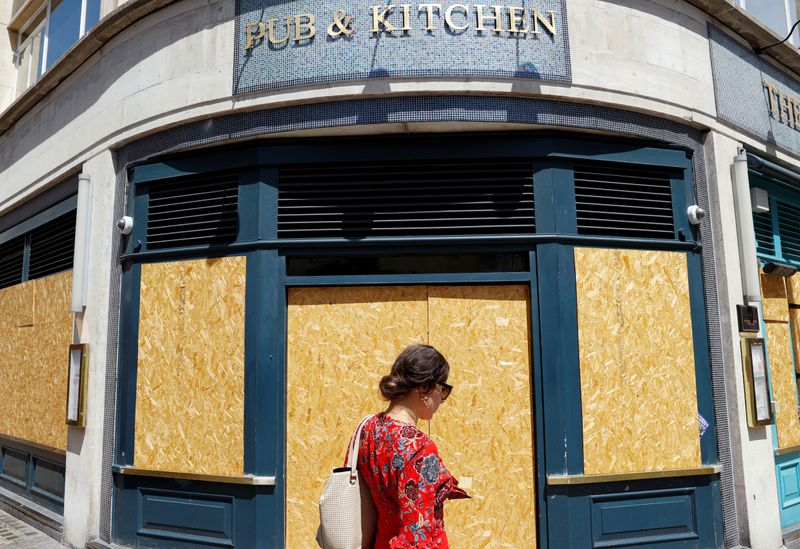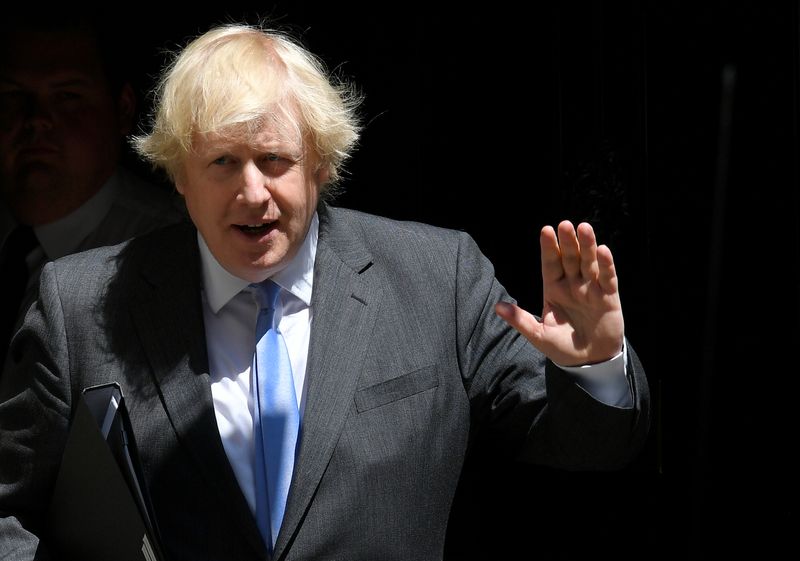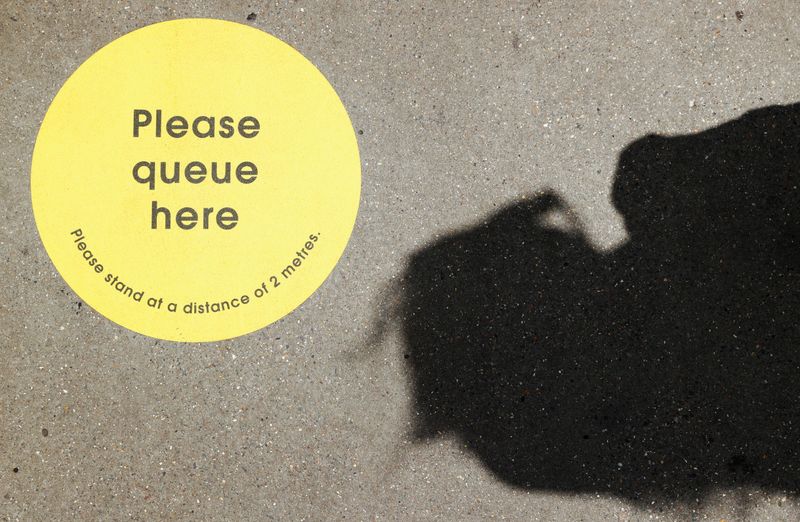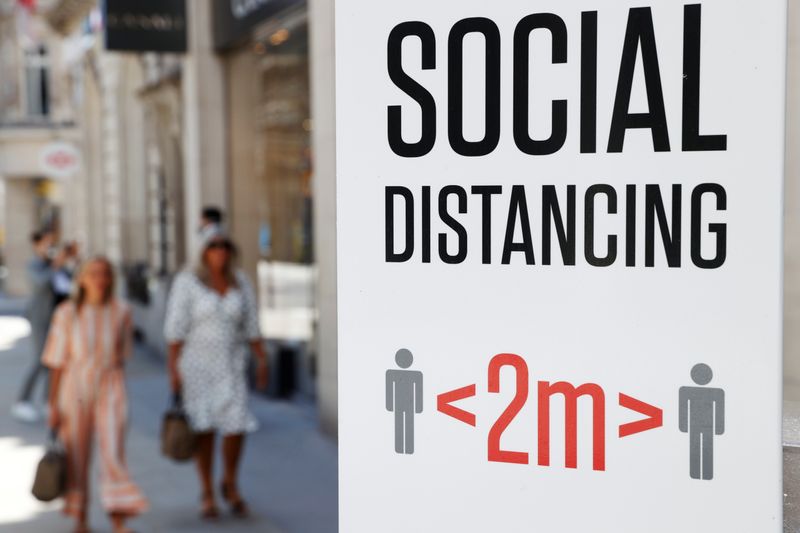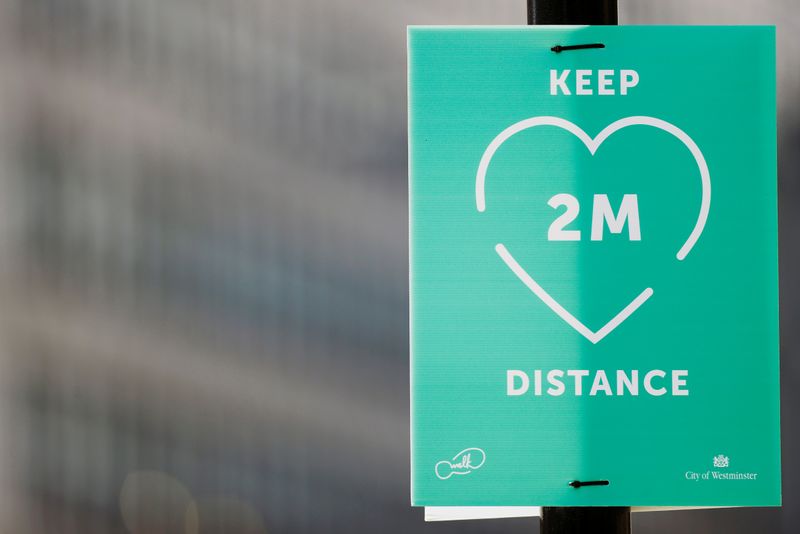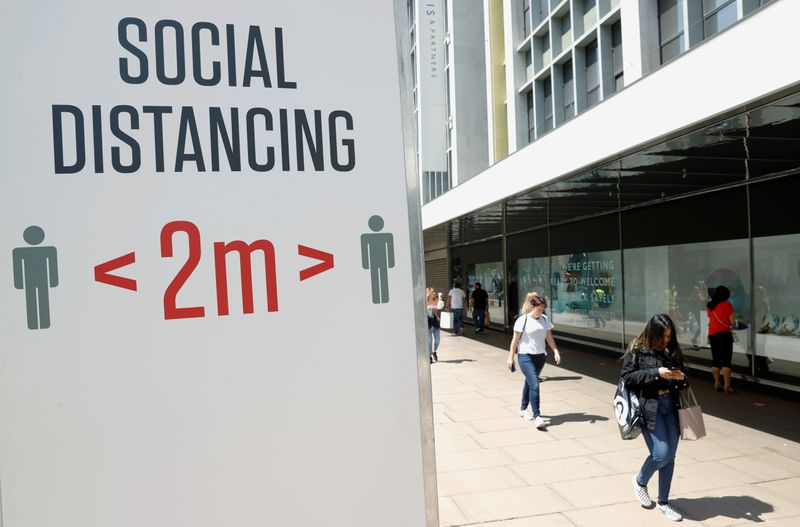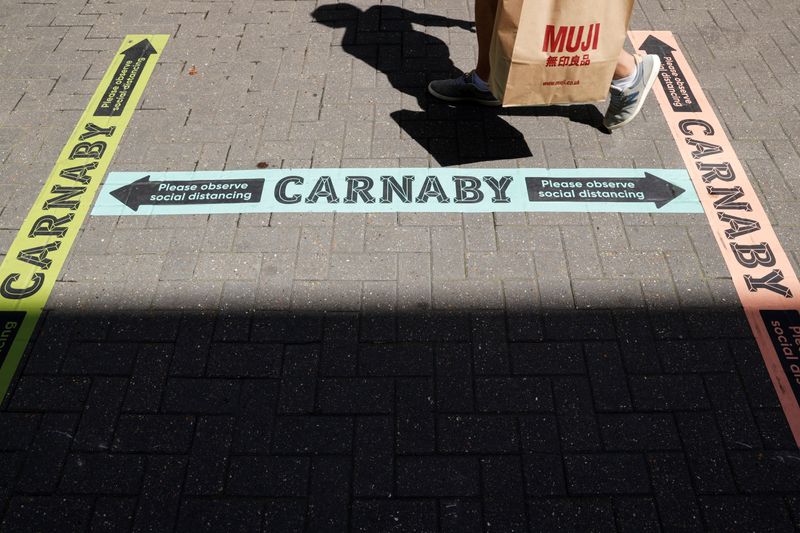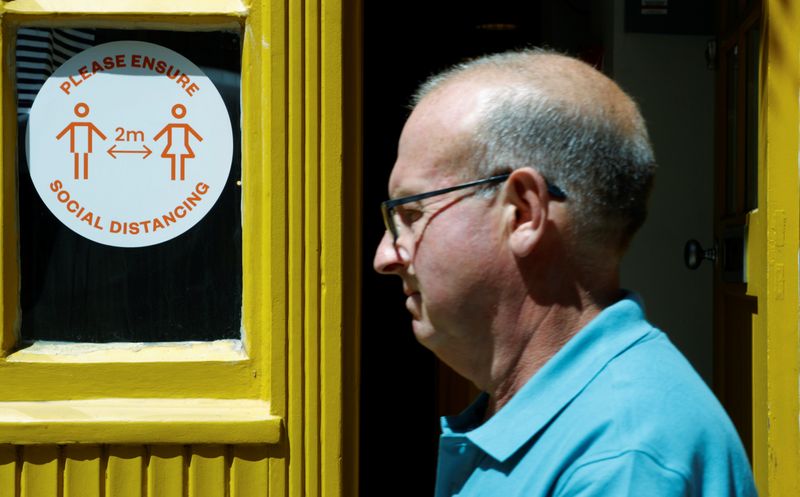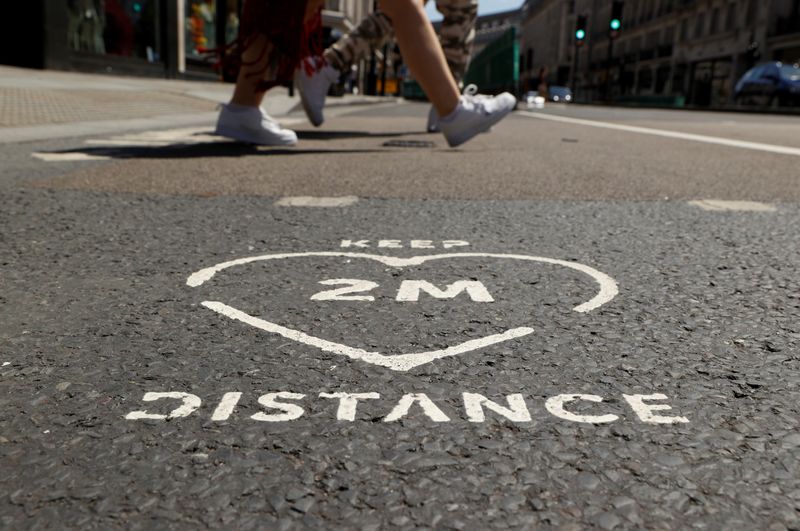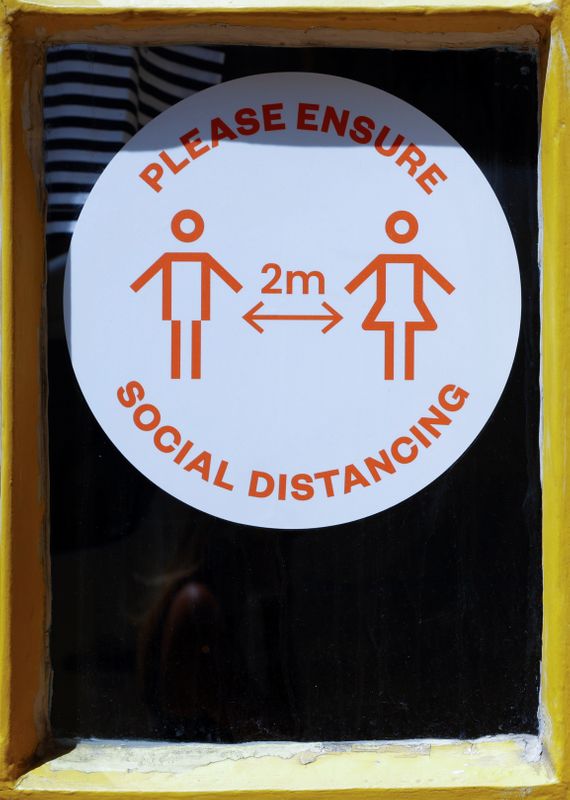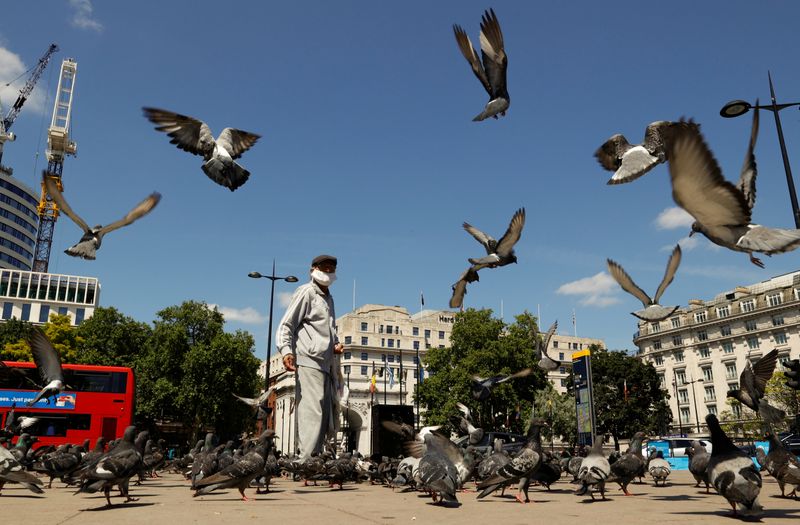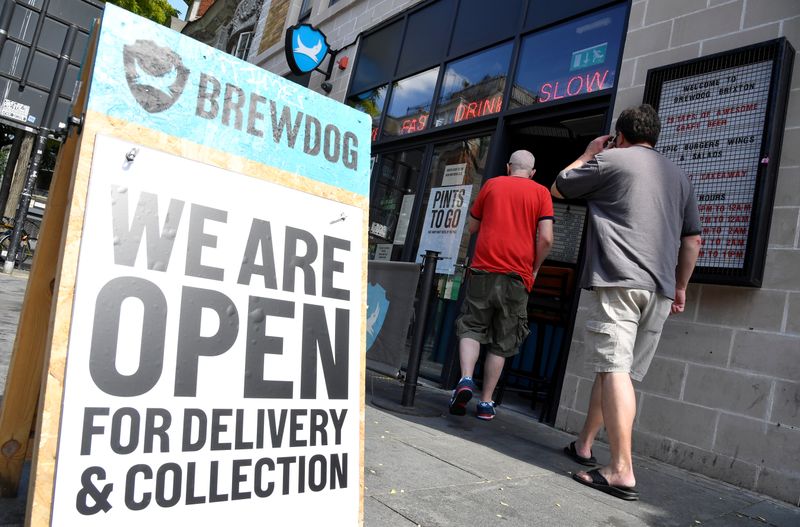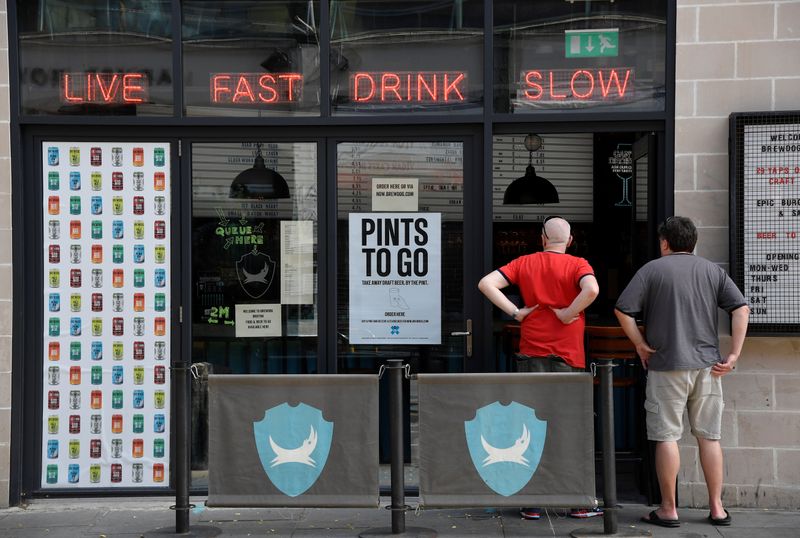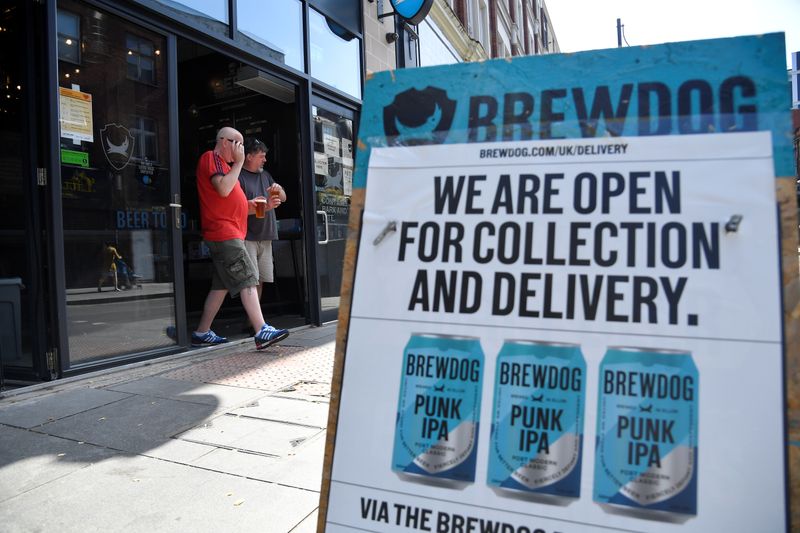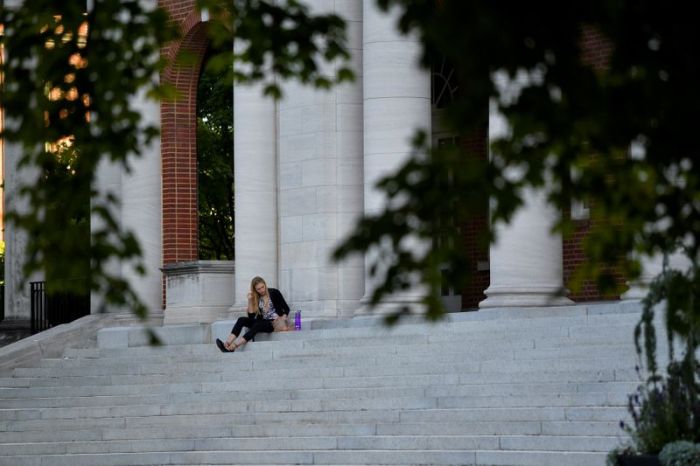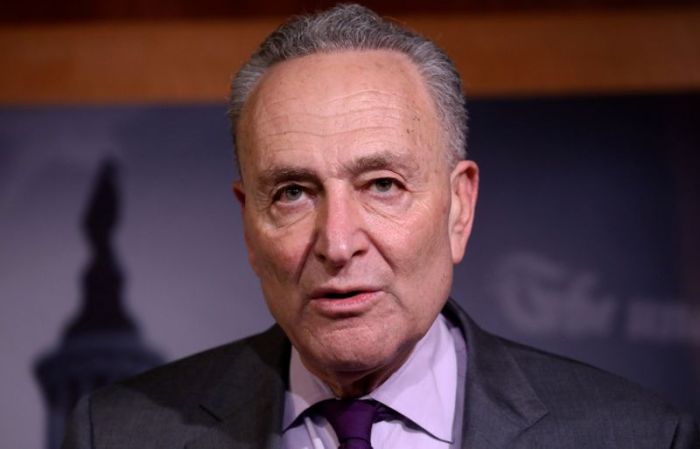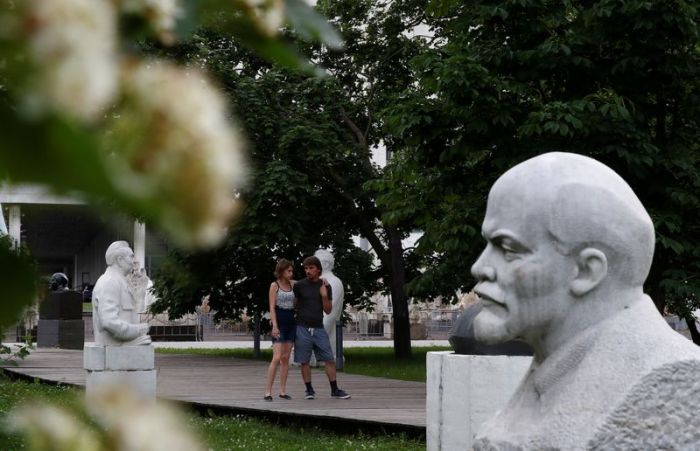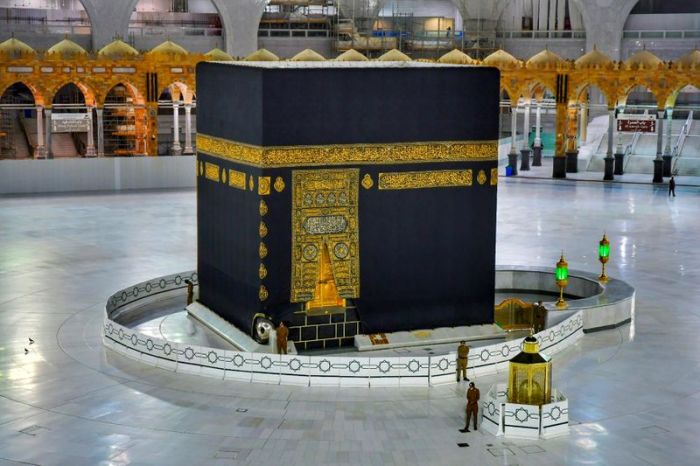LONDON (Reuters) – Prime Minister Boris Johnson said on Tuesday pubs, restaurants and hotels could reopen in England early next month, easing the coronavirus lockdown that has all but shut the economy.
In other signs of a gradual return to normal life, hairdressers will open again along with tourist attractions like theme parks, but nightclubs, indoor gyms and swimming pools will stay closed.
Johnson has been under pressure from businesses, especially in the hospitality sector, and from members of his governing Conservative Party to relax the lockdown, but until now he had resisted for fear of prompting a second wave.
On Tuesday, he said with infection rates falling and little current threat of a second wave of COVID-19 cases, he could reopen swathes of the economy.
By relaxing the rule on social distancing from two metres to one metre-plus, with the ‘plus’ meaning measures like wearing masks and using protective screens, Johnson said many businesses could reopen from July 4.
“Today we can say that our long, national hibernation is beginning to come to an end,” he told parliament.
“All hospitality indoors will be limited to table service and our guidance will encourage minimal staff and customer contact.”
He encouraged people to return to England’s pubs, but said they should act responsibly and that those enjoying the British tradition of a pint should give their names on arrival.
The changes will allow two households to meet in any setting and all schools will reopen in September, he said, adding that laws specifying social contact would be replaced with the new guidance.
Business cautiously welcomed the measures. Adam Marshall, director general of the British Chambers of Commerce, said: “We are still a long way from business as usual. Broader efforts to boost business and consumer confidence will still be needed.”
Britain has one of the highest death tolls in the world from COVID-19, but the number of cases has been steadily falling. Health officials on Monday reported just 15 new deaths, the lowest rise since mid-March.
The daily tally of deaths peaked in April, when the toll exceeded 1,000 on nine days.
Johnson said lockdown measures might need to be reintroduced if there were a second spike.
Flanking Johnson for the last daily news conference, his top coronavirus advisers echoed that note of caution.
The Chief Medical Officer for England, Chris Whitty, said it remained essential for people to report symptoms and isolate if instructed to, adding that the current restrictions could remain in place into next year as coronavirus continued to circulate.
“We are coming back down to average levels of death for the UK now … but don’t be fooled that this means it’s gone away,” said Patrick Vallance, Government Chief Scientific Adviser.
“The disease is growing across the world. It’s coming down in the UK but it hasn’t gone away.”
(Additional reporting by Elizabeth Piper, William James, Sarah Young, Paul Sandle, David Milliken, Estelle Shirbon, Alistair Smout and Guy Faulconbridge; Writing by Michael Holden; editing by Stephen Addison)

